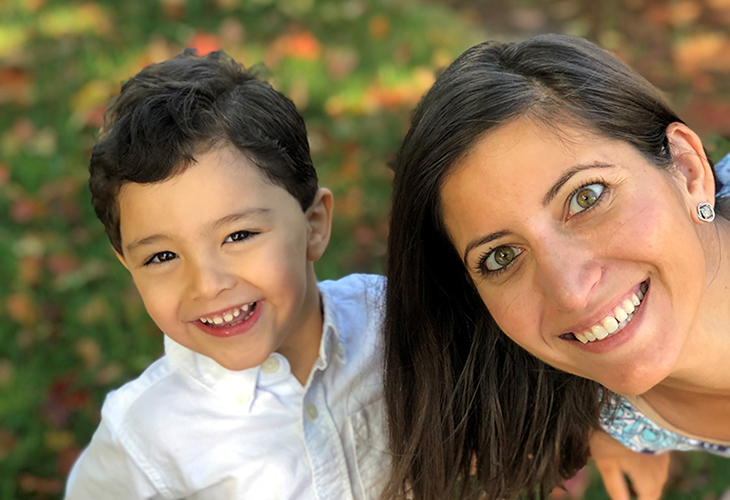Meet Lindsey
 Music helps us heal in countless ways. Our favorite songs lift our spirits, regardless of the challenges we are facing that day. For lifelong performers—even those who only sing in the shower—music is both a treatment and a goal during rehabilitation. The right song can give us the motivation to race one more mile — or to take just one more step.
Music helps us heal in countless ways. Our favorite songs lift our spirits, regardless of the challenges we are facing that day. For lifelong performers—even those who only sing in the shower—music is both a treatment and a goal during rehabilitation. The right song can give us the motivation to race one more mile — or to take just one more step.
At Spaulding, music plays a role in our approach to caring not just for the patient, but for the whole person.
When Lindsey Santiago was diagnosed with multiple sclerosis (MS) at age 25, she didn’t realize how much her life would change. While she has experienced happy milestones — marrying her long-time boyfriend, giving birth to their now-3-year-old, Max — Lindsey’s condition has also progressed and presented new challenges. Spasticity is a common symptom of MS, affecting her feet and legs and requiring Lindsey to use assistance to walk — and to rely on others to carry her toddler son. “I have balance issues,” she says. “When you’re holding a child, you don’t want to fall.”
After her stay at Spaulding Rehabilitation Hospital, Lindsey now participates in Spaulding’s outpatient neurologic music therapy program to gain steadiness on her feet. She works with therapist Caitlin Hyatt, who creates personalized interventions based on cutting-edge neuroscience research. Caitlin makes playlists with everything from Destiny’s Child to Broadway show tunes, all set to specific beats-per-minute pacing for the day’s goals. “Everything changes when you put music on,” says Lindsey, who credits the therapy with helping improve her balance, speed, and safety — slowing and reversing the typical pattern of MS.
In people recovering from stroke, traumatic brain injury, and other conditions, neurologic music therapy helps restore neural pathways using musical rhythms — like helping someone gain steadiness to walk, guided by the strum of a guitar. This therapy can lead to profound physical outcomes, and emotional ones.
“We see this treatment bring so much healing not only to patients, but also to families and other caregivers,” says Brian Harris, therapist and founder of MedRhythms — Spaulding’s partner in delivering the most comprehensive neurologic music therapy program in the country. It is certainly true in Lindsey’s case, who notes that her son Max will do drills with her because “he loves to dance.”
